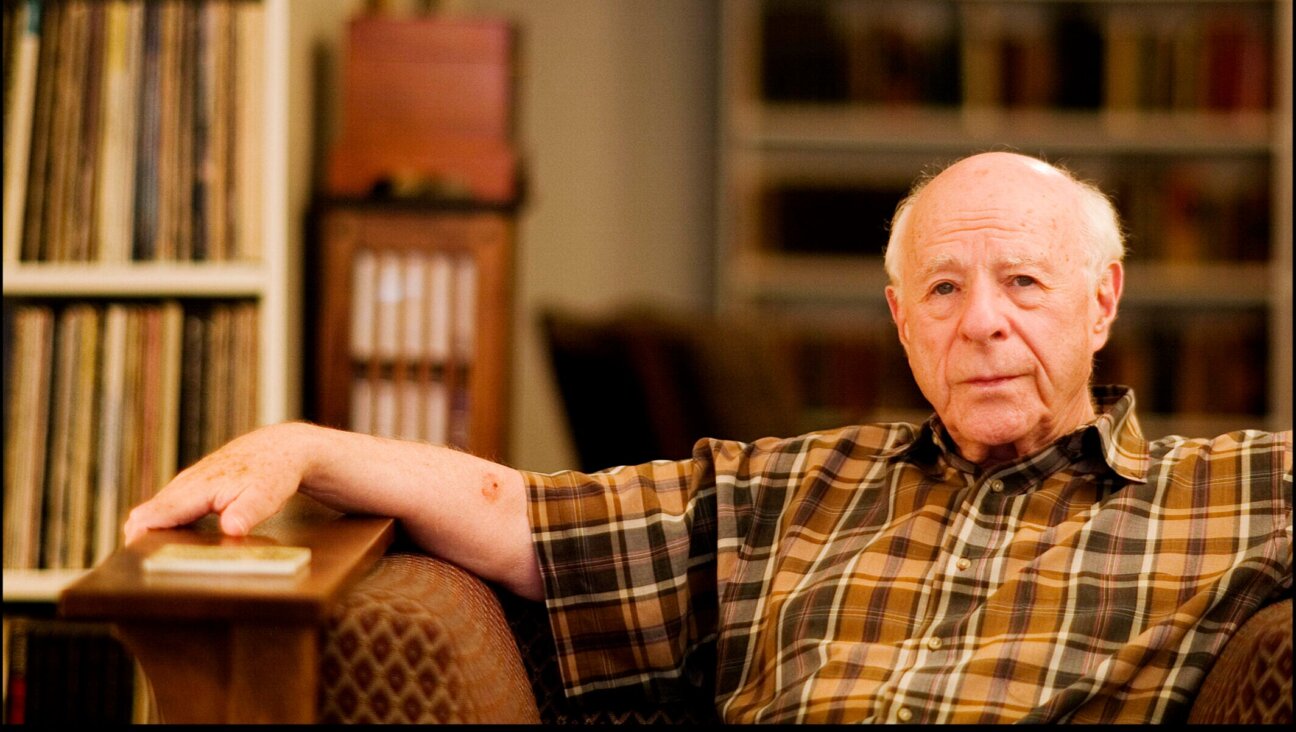Jewish Groups Slam Supreme Court for Ruling Approving Prayer at Town Meeting

Prayer Fight: Susan Galloway, who is Jewish, speaks as Supreme Court hears case about town hall prayer meeting. Image by getty images
An array of Jewish groups decried a U.S. Supreme Court decision allowing prayers at town hall meetings.
The 5-4 decision along conservative-liberal lines handed down Monday reversed a lower appeals court decision in favor of a lawsuit brought by Susan Galloway and Linda Stephens, an atheist in Greece, a town in upstate New York.
The town board has since 1999 opened meetings with a prayer, almost always by a Christian clergyman, and some of these at times proselytized.
The plaintiffs held that the prayers should be nonsectarian, a position the Supreme Court’s conservative majority ruled overextended government reach.
“To hold that invocations must be nonsectarian would force the legislatures that sponsor prayers and the courts that are asked to decide these cases to act as supervisors and censors of religious speech,” Justice Anthony Kennedy wrote in the majority opinion, “a rule that would involve government in religious matters to a far greater degree than is the case under the town’s current practice of neither editing or approving prayers in advance nor criticizing their content after the fact.”
A number of Jewish groups, which had filed friend of the court briefs, condemned the decision. The Anti-Defamation League, in its statement, said the ruling was “deeply disturbing” and noted the circumstances of the Greece case, in which opening prayers involved not just lawmakers but citizens petitioning their town council.
“The religiously divisive implications of this new rule are troubling in any of these contexts, however it is particularly disturbing at the local level where ordinary citizens seek recourse from public officials and will likely feel pressured to participate in religious observances not of their own faith,” the ADL said.
Also condemning the decision were the Reform movement’s Religious Action Center, the National Council of Jewish Women, the Jewish Council for Public Affairs and the American Jewish Committee.
Marc Stern, the AJC’s general counsel, said he was relieved that the court did not go as far as some had expected and gut standards in place since the 1970s that ban legislating toward religious purpose.
“It turns out to be a fairly narrow decision,” he said.
In his decision, Kennedy said that “a pattern of prayers that over time denigrate, proselytize or betray an impermissible government purpose” would violate the constitution. Stern said that the conservative majority and the liberal minority seemed to accept that the Greece council did not intend to advance a pattern of prayers advancing proselytization, and that the impression that it was impressing Christianity on its citizens was an inadvertent one.
“The only discernible legal difference between the plurality and the dissent is whether stupid bureaucrats violate the establishment clause,” he said. Justice Elena Kagan, in her dissent, cited a seminal moment in American Jewish history, in 1790, when George Washington communicated with Moses Seixas, a lay official of the Jewish community in Newport, R.I.
She noted that Seixas, in a letter to Washington, expressed gratitude for an American government “which to bigotry gives no sanction, to persecution no assistance – but generously affords to All liberty of conscience and immunities of Citizenship.”
In his reply, now enshrined as a key document outlining religious freedoms, Washington, Kagan said, “like any successful politician” knew to borrow a successful turn of phrase – and appropriated Seixas’ language.














